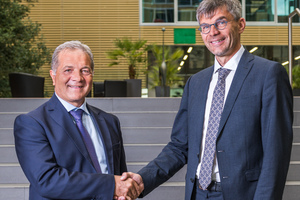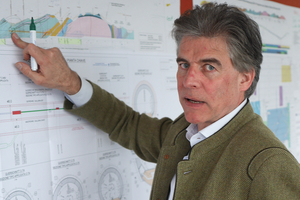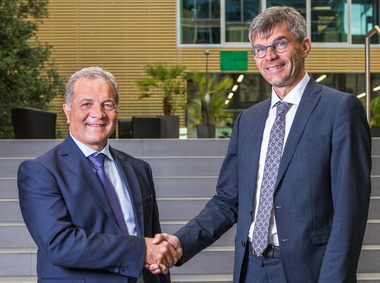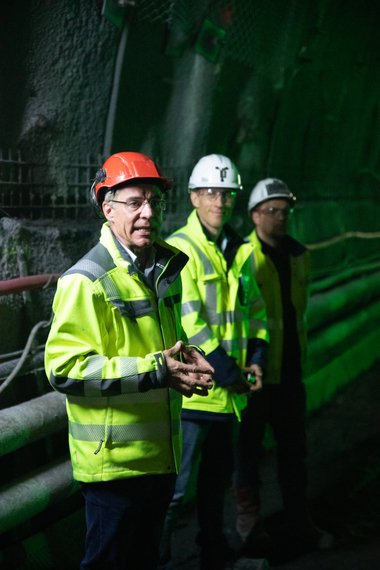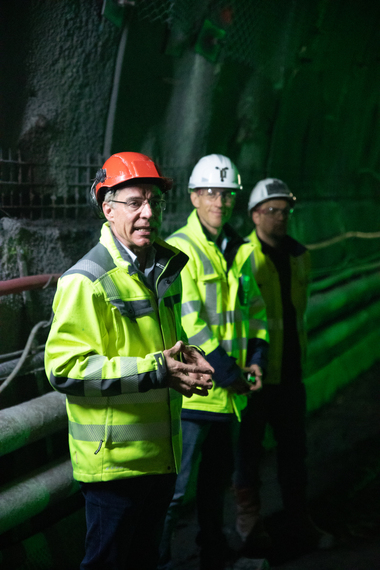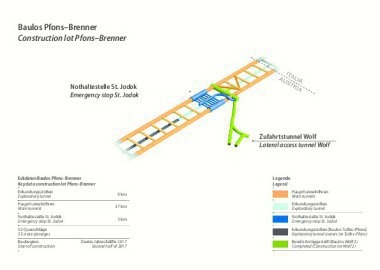Konrad Bergmeister and Raffaele Zurlo left the Brenner Base Tunnel
In a meeting of the supervisory board of the Brenner Base Tunnel in Innsbruck, Austria, the final decision was executed on 17 September 2019: Prof. Konrad Bergmeister, Austrian CEO since 2006, and Raffaele Zurlo, Italian CEO since 2010, left the Brenner Base Tunnel with effect on this date. According to a news ticker of the Austrian Press Agency APA, disputes between Bergmeister and Zurlo resulted in this final decision.
Martin Gradnitzer and Gilberto Cardola Take Over as CEOs
Martin Gradnitzer from Austria and Gilberto Cardola from Italy take over the positions as CEO for their countries from now. The new CEOs are “accredited experts of the Austrian and Italian railway companies” according to a BBT press release. Gradnitzer was up to now project manager at the ÖBB Infrastruktur AG, a 100 % subsidiary of the ÖBB-Holding AG and wholly owned by the Republic of Austria. He was project manager at the Lower Inn Valley section, the Austrian access route to the Brenner Base Tunnel in Austria, according to Dr. Christoph Gasser-Mair, ÖBB spokesperson for Tyrol and Vorarlberg. Gilberto Cardola was responsible for national activities management at Italferr, a company belonging to the Italian State Railways Group Ferrovie dello Stato Italiano.
But what happened at one of the most important tunnelling projects in Europe? The flow of information about the reasons is very poor. ÖBB-spokesman Gasser-Mair only confirmed that Prof. Bergmeister offered to make his position available although his contract had been extended in 2018. Zurlo’s extension also had been confirmed in 2019 for another three years.
Commercial Construction Invoicing According to National Laws
A report of salto bz, a bilingual online news portal in South Tyrol, stated in mid-August, that the decision had already been made in late June 2019 by the 12-member supervisory board. Both Bergmeister and Zurlo were recalled at that meeting. The decision was not published due to the dispute between the two CEOs.
The dual system of decision making at BBT SE created conflicts in daily business with different responsibilities and unequal powers. Especially problems in the construction phase appeared, due to the different regulations and laws in Austria and Italy for tender invitation and procurement. Some processes, which were daily business in Austria, were close to illegal in Italy. Bergmeister had intended to put an end to the dual system by an amendment of the bylaws, to become independent of the Italian procurement laws.
In addition to this difficult situation, personal reasons between Bergmeister and Zurlo, resulted in a conflict that caused Konrad Bergmeister to make his position available, eventually resulting in the replacement of both CEOs in Austria and Italy by Gradnitzer and Cardola. Also, with the pressure of the European Union to cut the financial support, the amendment of bylaws was done. From now on, the commercial construction invoicing is separated for Austria and Italy and will be executed under the national laws.
“Two Different People and Mentalities”
Martin Ausserdorfer, a member of the supervisory board, posted an emotional message on facebook: “[…] Without Konrad Bergmeister, the project Brenner Base Tunnel would never have been developed so quickly and finally approved. The entire employees have done great with him and Ezio Facchin [Italian CEO before Raffaele Zurlo]. With courage and conviction, challenges have been accepted and pragmatically handled. That's why the BBT at the institutional level is the best project in Europe... – 2010 Raffaele Zurlo became a member of the board of directors, from whom I could learn much as well. The precision and accuracy of his formulations and decisions have shaped me. Each document was created and substantiated in detail so that “tomorrow” was understandable and comprehensible for everyone. […]” Ausserdorfer described in short words what happened: “Two different people and mentalities, which have made each other great until they finally came across the limits of cultural and legal nature between Austria and Italy.”

